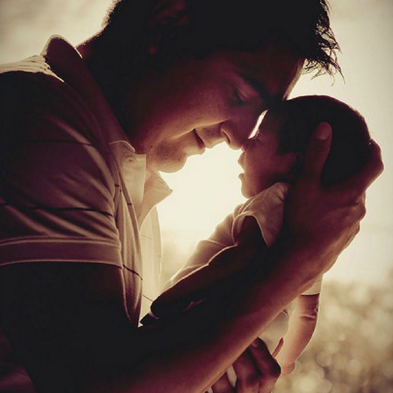
Asking yourself, “What is my duty?” can be more important than “What is my passion?” Passion is often self-focused, while duty is other-focused – and that can make it a much greater source of meaning and purpose.
When you first become interested in learning more about “happiness” or “success,” it’s easy to fall for the whole “follow your passion” mantra that has become so popular these days.
“Discover your passion. Do what you love. Follow your dreams.”
Everyone seems to repeat these clichés in one form or another. We share inspirational quotes on social media like Facebook and Twitter, especially many teenagers and young adults who grow up telling themselves, “I’ll just do what I really want to in my life (and screw everyone else).”
To be honest, these ideas have always resonated with me to some degree. A part of it is my rebellious nature and willingness to break norms in society. Another part of it is I’ve always been interested in “big ideas” and achieving “big things” with my life.
These sentiments have their value. However, over time I’ve become less obsessed with the idea of “following your passion,” and I definitely don’t think it’s something everyone needs to do to be happy or live a satisfying life.
For many, the idea of “following your passion” is just not realistic or practical.
People have jobs, families, and bills to pay – obviously they can’t just drop everything on a whim and follow their newfound interest in fencing, or painting, or coin-collecting, or whatever. As you get older, “follow your passion” becomes less and less useful advice.
Instead of asking, “What’s my passion?” – a much better question to ask yourself is, “What’s my duty?”
One major distinction is that “passion” is often self-serving, while “duty” is other-serving.
When we only care about our passions, we only focus on what we really love and enjoy doing. We only focus on what makes us feel good. But in the process, we may end up trying to avoid things that don’t immediately give us that spark of joy or motivation.
What comes to your mind when you ask yourself, “What’s my duty?” Usually, it’s a duty toward other people and responsibilities outside of yourself.
For example:
- Family – Family often comes first. If you’re married and have kids, one of your biggest priorities is taking care of them and raising them to be happy and successful into adulthood.
- Job/Career – Your job is another huge priority for you. Not just because it provides financial support for you and your family, but also because your job plays a role in making society a better place.
- Community – Aside from your close circle of family and friends, you also have a duty toward your local community and making sure it’s a healthy, clean, and safe place to live (not just for your family, but also your neighbors).
- Charity and Volunteer Work – Within reason, we also have a moral duty to take care of those who are less fortunate than us. Of course we can’t “save the whole world,” but identifying the ways you can afford to help those who are truly in need can go a long way.
- God/Religion – If you’re a religious or spiritual person, you also recognize that you have a duty toward your God, your religion, your traditions, or your philosophy – living the best life you can from a deeper “spiritual” standpoint.
None of these duties may seem as exciting or glamorous as “follow your passion” or “follow your dreams,” but there is a great satisfaction that comes when you are a dutiful person and take responsibility for the bigger things in life.
A “duty” often implies serving something outside of yourself (whether it’s a person, a community, an ideal, or a God), so following your duties can often add a great source of meaning to your life, even if it isn’t necessarily a source of immediate pleasure.
For example, being a parent is hard and tedious work. Day-in and day-out you need to perform your duties and take responsibility for your children, no matter how you feel, and often with little sense of reward or pleasure or a simple “thank you.”
Despite this lack of reward or pleasure or appreciation, fulfilling your duties often provides a deeper sense of meaning in the grand scheme of things.
Duty implies that you’re part of a bigger picture, but you’re not the “whole picture.” You are just a small piece, though it’s an important piece nonetheless.
When you recognize your duties in life, you also recognize your place in life and the role you play in it. You understand that you serve something bigger than just yourself, and you are not the only thing that matters in the universe.
When you are in the mindset that you have a “duty” to fulfill (no matter what it is), you do what needs to be done because it needs to be done. And that’s all that matters. You aren’t looking for reward or recognition.
There is a silent honor in doing your duty, even if you don’t get recognition for it. In a sense, it can even be more noble and honorable to do the “right thing” when no one else sees it or appreciates it.
When reflecting on my goals in life, I used to commonly ask myself, “What’s my true passion? What really makes me tick? What makes me feel good?” But now I’m shifting toward questions like, “What’s my duty? What do I serve in my life? What role do I play in this world?”
The answers aren’t always as awesome or thrilling, but they do keep me focused on what really matters and what’s really in my power.
Enter your email to stay updated on new articles in self improvement:
